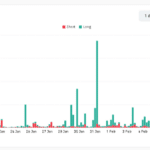By Mark Pittman
Dec. 12 (Bloomberg) -- The Federal Reserve refused a request by Bloomberg News to disclose the recipients of more than $2 trillion of emergency loans from U.S. taxpayers and the assets the central bank is accepting as collateral.
Bloomberg filed suit Nov. 7 under the U.S. Freedom of Information Act requesting details about the terms of 11 Fed lending programs, most created during the deepest financial crisis since the Great Depression.
The Fed responded Dec. 8, saying it’s allowed to withhold internal memos as well as information about trade secrets and commercial information. The institution confirmed that a records search found 231 pages of documents pertaining to some of the requests.
“If they told us what they held, we would know the potential losses that the government may take and that’s what they don’t want us to know,” said Carlos Mendez, who oversees about $14 billion at New York-based ICP Capital LLC.
In its response to Bloomberg’s request, the Fed said the U.S. is facing “an unprecedented crisis” when the “loss in confidence in and between financial institutions can occur with lightning speed and devastating effects.”
“Notwithstanding calls for enhanced transparency, the Board must protect against the substantial, multiple harms that might result from disclosure,” Jennifer J. Johnson, the secretary for the Fed’s Board of Governors, said in a letter e-mailed to Bloomberg News.
“In its considered judgment and in view of current circumstances, it would be a dangerous step to release this otherwise confidential information,” she wrote.
“There has to be something they can tell the public because we have a right to know what they are doing,” said Lucy Dalglish, executive director of the Arlington, Virginia-based Reporters Committee for Freedom of the Press. “It would really be a shame if we have to find this out 10 years from now after some really nasty class-action suit and our financial system has completely collapsed.”
The Fed lent cash and government bonds to banks that handed over collateral including stocks and subprime and structured securities such as collateralized debt obligations, according to the Fed Web site.
“Americans don’t want to get blindsided anymore,” Mendez said in an interview. “They don’t want it sugarcoated or whitewashed. They want the complete truth. The truth is we can’t take all the pain right now.”
Friday, December 12, 2008
Subscribe to:
Post Comments (Atom)



No comments:
Post a Comment